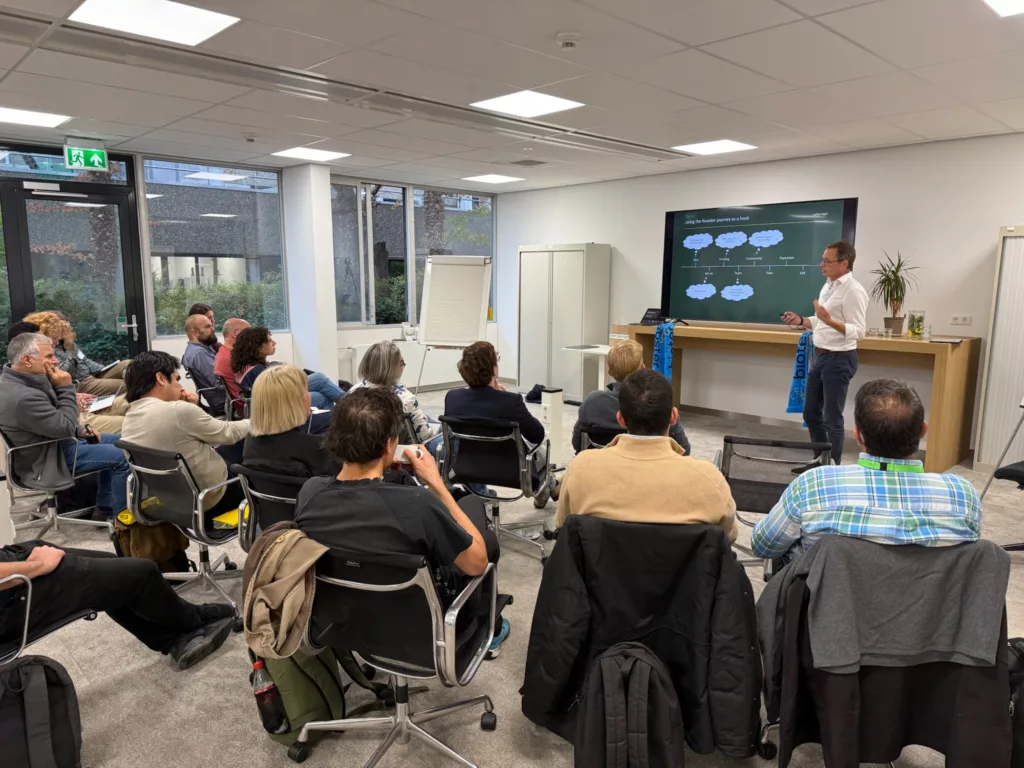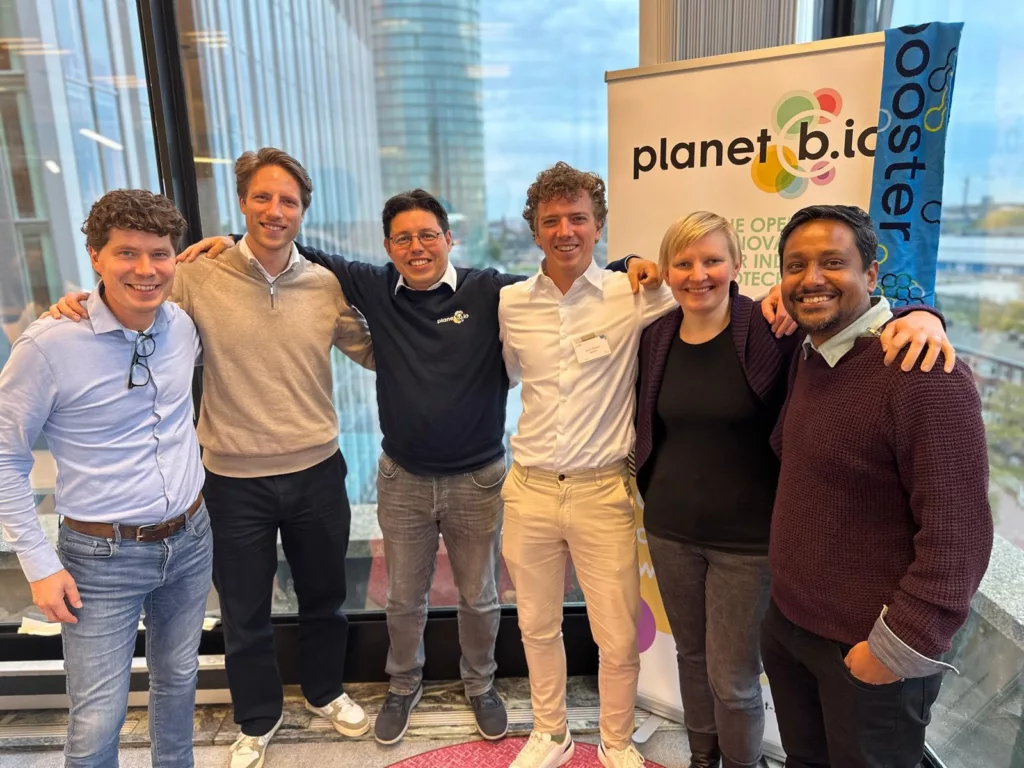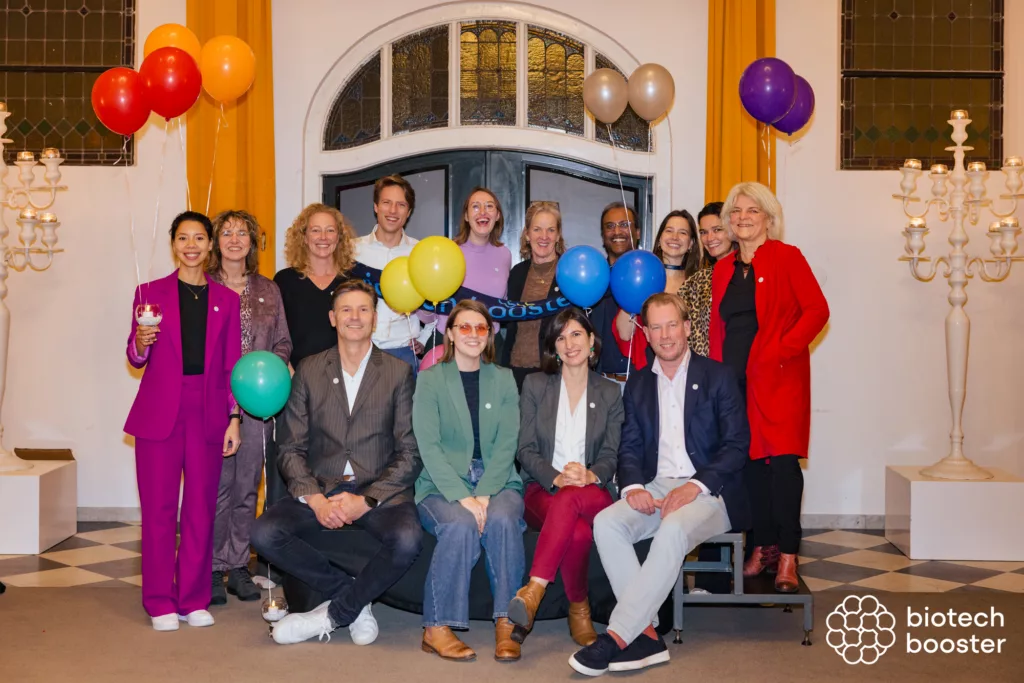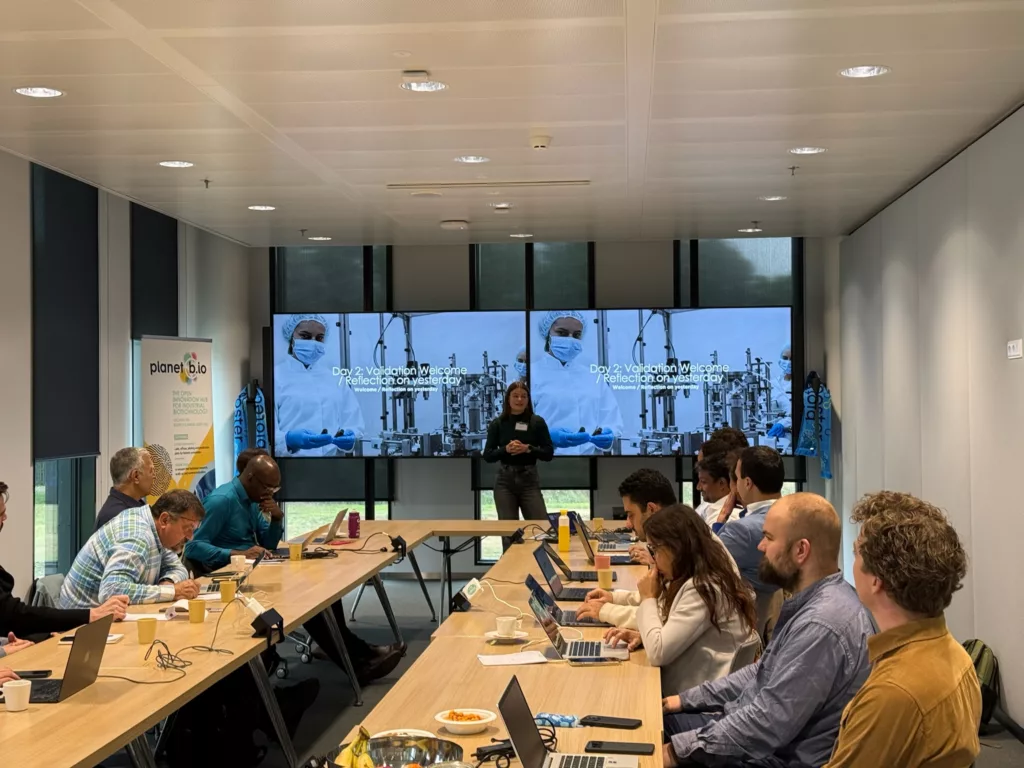The Industrial Biotech Bootcamp is a four-module training program organized by Planet.Bio and Biotech Booster. It is designed to accelerate the growth of early-stage industrial biotech ventures. Over the course of eight weeks, participants delve into key aspects of building a successful industrial biotech company. From understanding customer needs to defining value propositions, validating assumptions, and scaling towards impact. Each module combines deep learning with lectures from industry insiders, practical exercises, peer exchange, and expert guidance. This recap series follows the journey of our participants through all four modules.
For the second module, we returned to Planet B.io in Delft for the last time in the boot camp series. Over two intensive days, participants shifted focus from customers to technology and legal strategy: mapping their technical development journey and learning how to navigate IP, regulatory, and incorporation challenges.
Day 1: Building Your Technology Roadmap
This session was led by Koen Clymans with Dorus Velema as the main host. Koen is collaborating with Biotech Booster on a new tool to help industrial biotech startups design their first technology roadmap. This was exactly what the day focused on. Koen’s experience spans from Tate & Lyle and DSM to biotech startups like The Protein Brewery, Meatable, and Cosaic. He also serves as a coach for two bootcamp projects, MycoSafe and Shikimax.
After a short introduction, participants gathered around four themed worktables:
- Production with bacteria
- Production of materials
- Degradation with enzymes
- Enhancement with microbial communities
Energizer: The Spaghetti Challenge
Before diving into the technical sessions, teams took on a creative engineering exercise: the Spaghetti Challenge. Armed with 20 spaghetti sticks, one meter of tape, one meter of string, and a marshmallow, they had to build the tallest standing tower with the marshmallow on top. The winning team’s 70 cm structure towered above the rest, literally and figuratively. Key message: trial and error on a small scale, so you can find what works early on. A great start to an energetic day.
From Vision to Execution
Koen’s lecture centered around the principle “Begin with the end in mind.” A technology roadmap helps make your long-term vision tangible and breaks it down into actionable development steps. Participants discussed how such roadmaps not only guide R&D but also provide valuable input for early Profit & Loss (P&L) estimations.
Koen highlighted three lessons from the book “How Big Things Get Done”:
- Think slow, act fast: Plan thoroughly before execution (test on a small scale).
- Get the front end right: Know your direction and what’s required to get there.
- Use reference class forecasting: Learn from others’ mistakes to save time and money.
Especially in biotech, early choices have lasting consequences: once you start scaling, it becomes much harder to change direction.
Hands-On Workshop
After a lab tour at DSM by Niels V. and Wouter van Winden, participants designed their own “dream factory,” translating vision into specific unit operations, mass balances, and identifying key risks. With support from Maria C. Cuellar, they worked with Koen’s practical toolkits, rules of thumb, and estimation tables.
A follow-up exercise connected TEA (Techno-Economic Assessment) parameters to KPI and economic value matrices, providing a first glimpse of how technical choices drive business outcomes.
The day ended with a relaxed dinner in Delft, including an inspiring talk by Kirsten Steinbusch, known for her process-driven leadership at ChainCraft, DAB.bio, and now as a director at a growth fund (BioBased Circular).
Her key message: “Set the right goals together, know what you’re working toward and ensure good communication as a team. That’s how you keep direction.”
Day 2: Legal, IP & Regulatory Landscape
Day 2 shifted gears from technology to the legal side of building a biotech venture, covering everything from company formation and intellectual property to regulations.
The day was hosted and moderated by Zebra.Legal, with Bastiaan de Wit and Conny Bergsma coordinating the program and guest experts. After a brief introduction and reflection on the founder’s journey, the floor was given to a series of specialists.
Intellectual Property: Protecting Innovation
Nick Schopman and Nick Landman from Arnold & Siedsma took participants through the process of securing and managing IP rights, using clear biotech examples, including the now-famous Donald Duck analogy. Their main advice:
“If possible, file for IP protection only when you’re close to commercialisation, though for university spin-outs, this may require creative timing.”
Regulatory Frameworks for Industrial Biotech
Next up were Lisanne Steenbergen (Hoogenraad & Haak) and Karin Verzijden (AXON Lawyers), who teamed up to present a comprehensive overview of the regulatory landscape for industrial/food biotech. From safety to compliance and product approval, their joint talk offered valuable clarity on a complex and broad topic.
From Rules to Reality
In the afternoon, Maria Cuellar returned to share her experience from Farmless, translating the day’s legal and regulatory insights into practical steps for startups developing novel food products. Her reflections showed how early alignment with regulatory authorities can prevent costly delays later. Also linking this to the technology roadmap, which is the backbone of your development to commercialization.
Finally, Bastiaan de Wit wrapped up the day with an interactive Q&A session. The discussion naturally turned to equity distribution and how to bring key people on board effectively.
Key Takeaways
- A technology roadmap is the backbone of your development, linking vision, operations, and financial planning.
- “Think slow, act fast”: Testing upfront saves time later.
- Learn from others before making costly mistakes.
- Protect IP strategically; timing is key.
- Regulatory planning should start early.
- Strong teamwork and shared goals keep ventures aligned.
Looking Ahead
With two modules behind us, participants are now combining customer insights with technical roadmaps and legal frameworks, setting a strong foundation for the next stages of their biotech ventures.
Next up: Module 3, where we’ll dive into scaling strategies and go-to-market approaches. Stay tuned!





